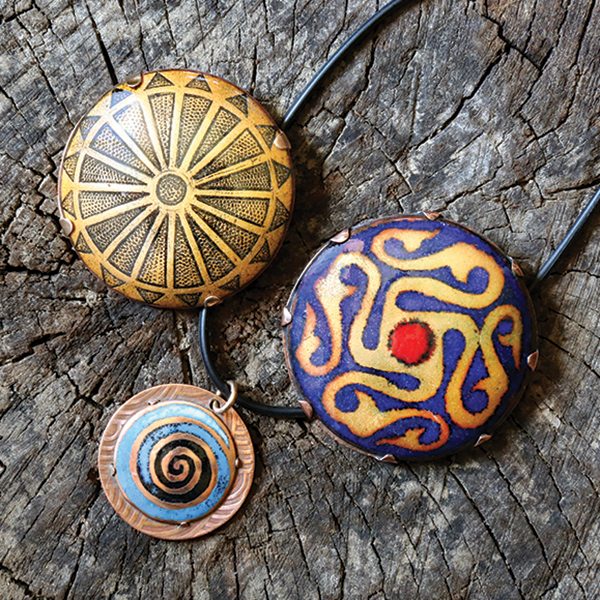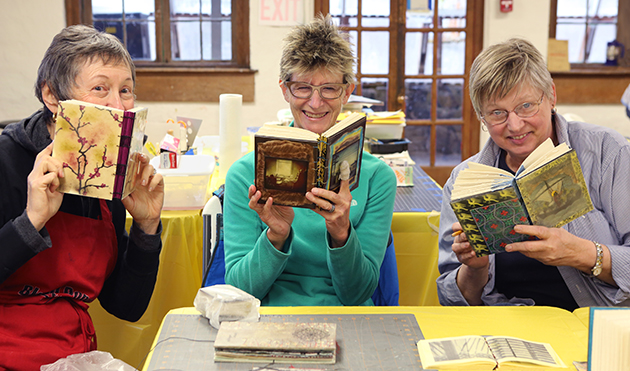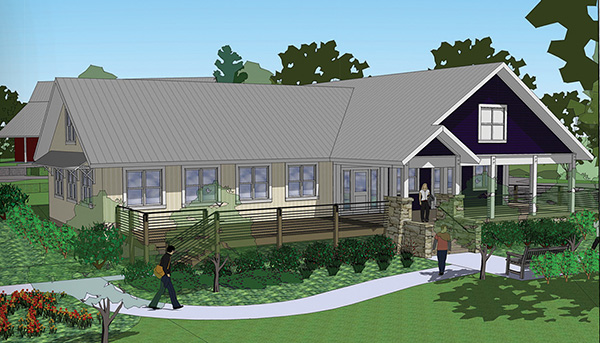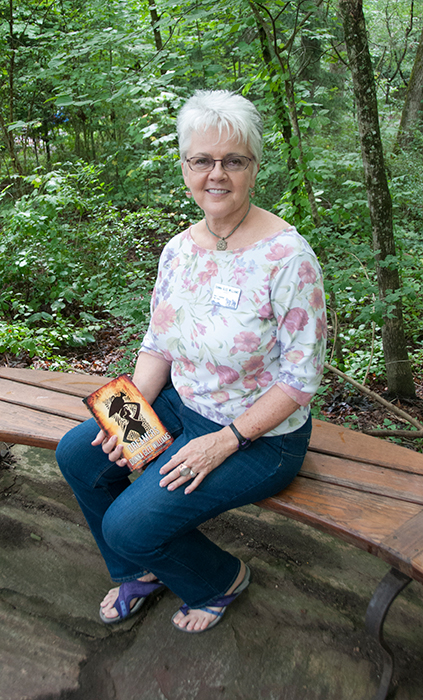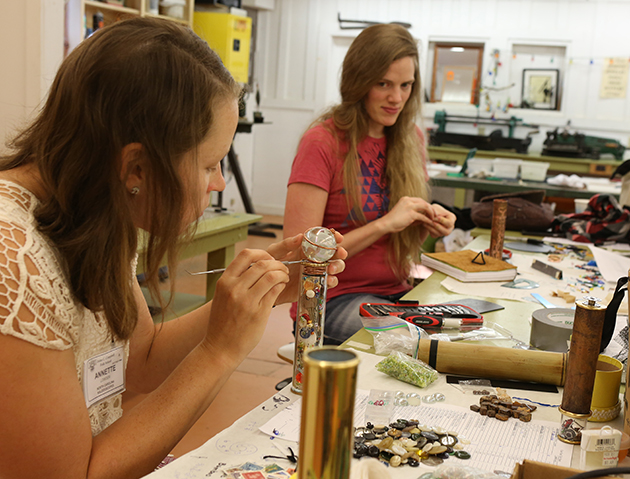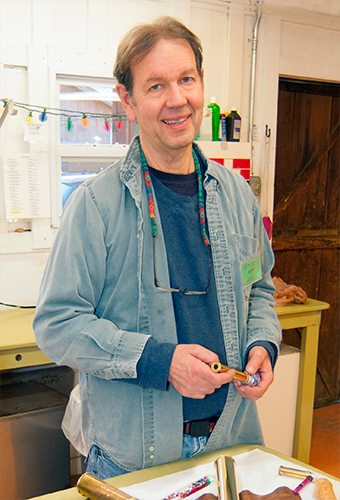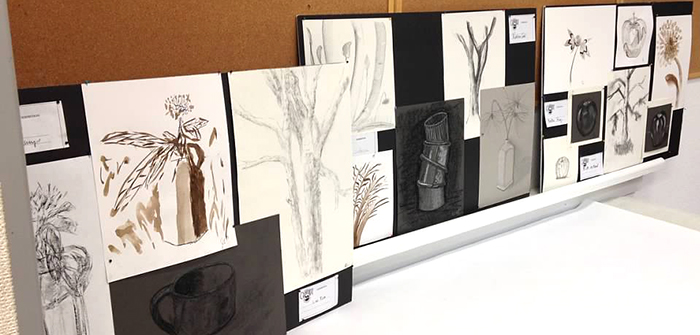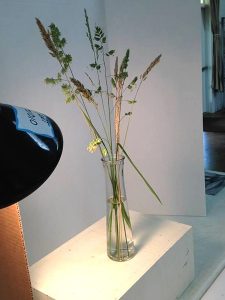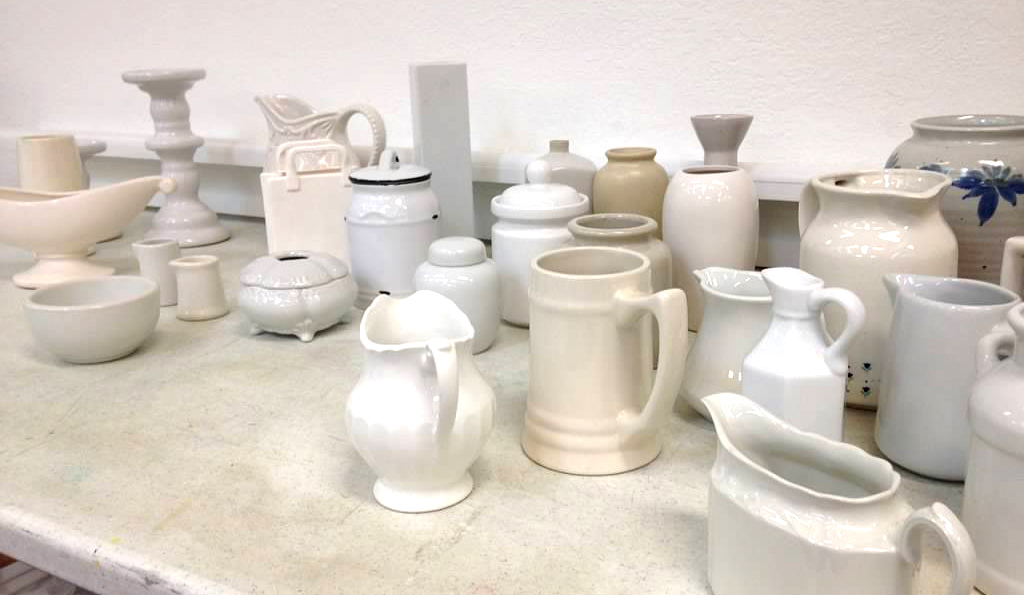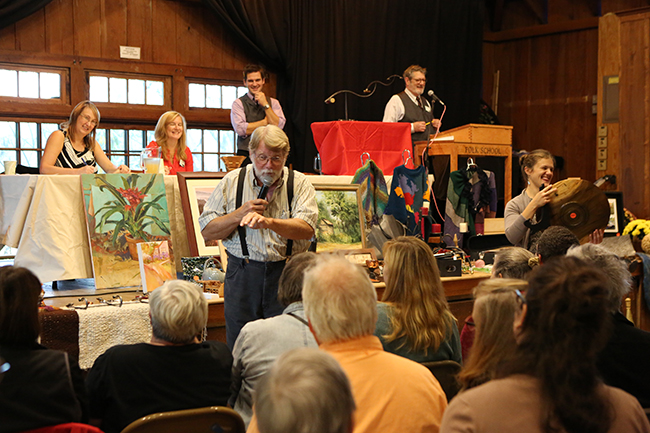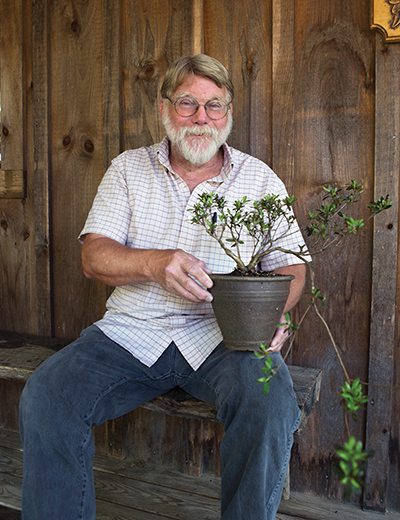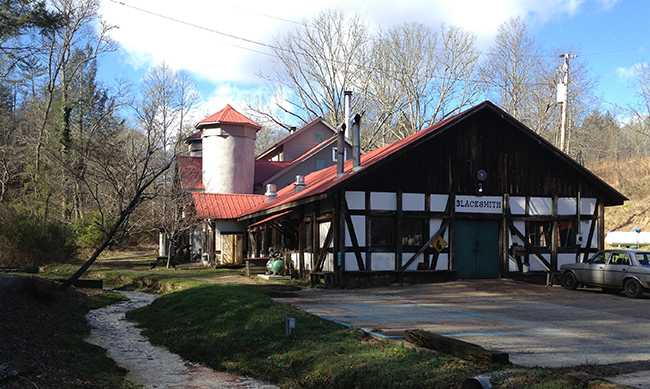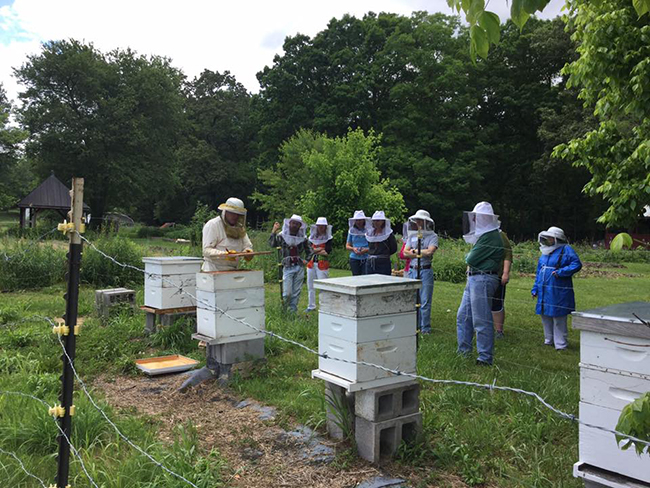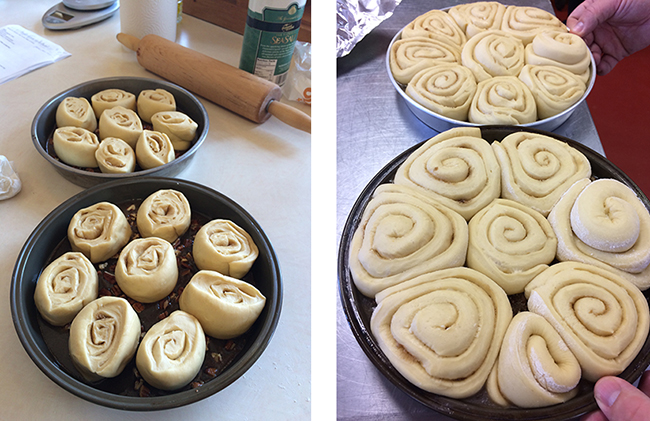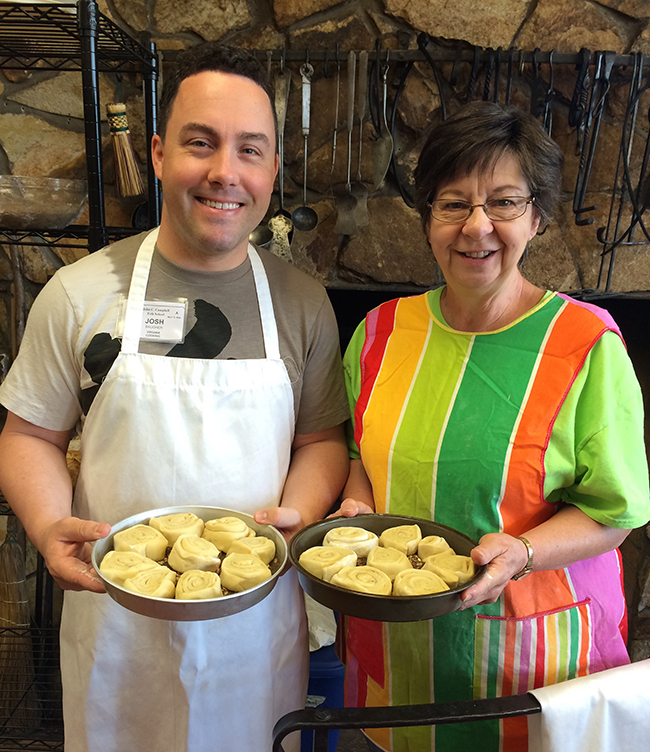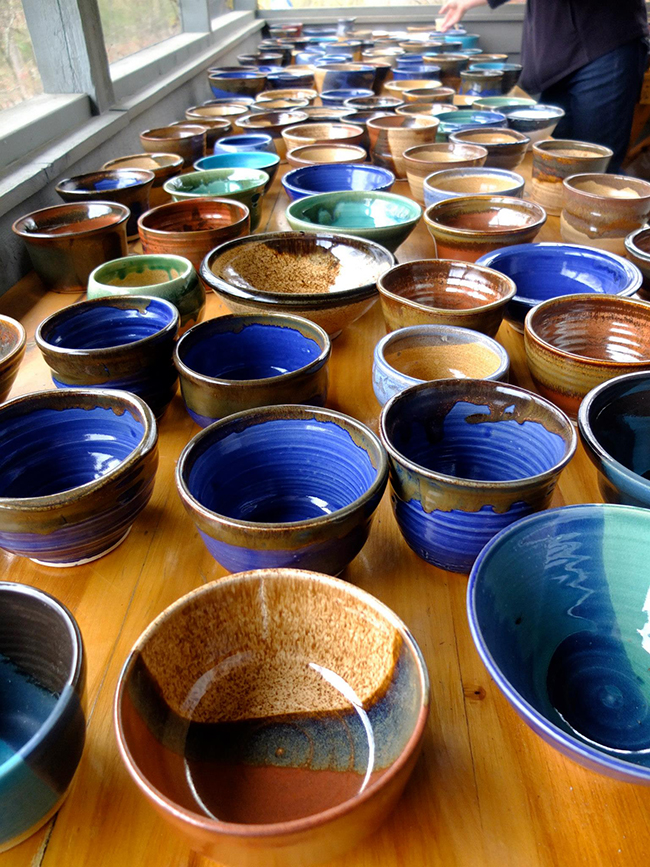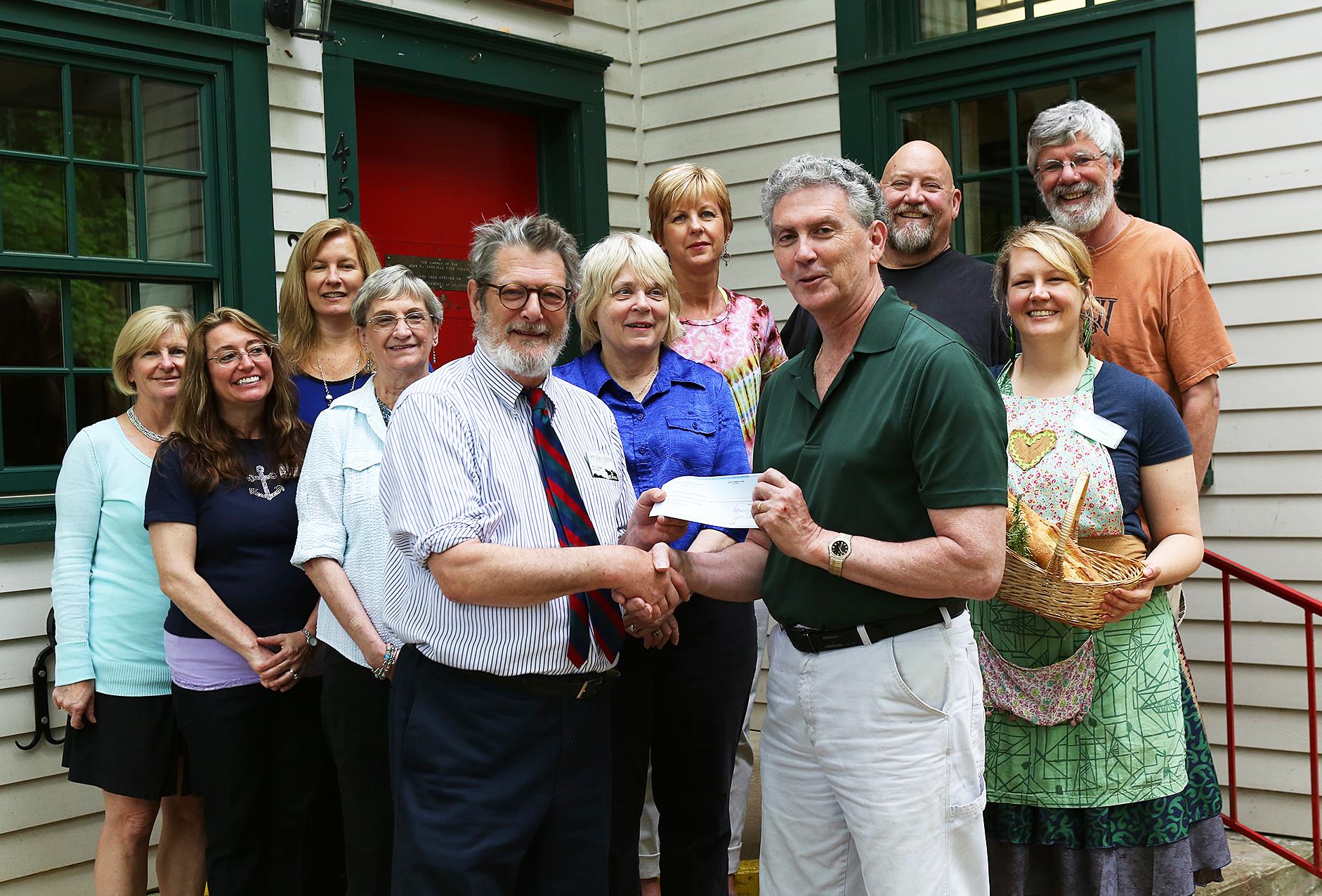Are you ever inspired during the holiday season and decide to try your hand at making a gingerbread house from scratch? Annnnnd then your dreams of edible decorative glory come crashing down when your gingerbread house looks more like a shanty shack than a storybook chalet? I’ve been there, and maybe you have too. Have no fear! Expert baker and cake decorator, Jodi Rhoden will be here to save the (holi)day with her upcoming weekend class: Handmade Gingerbread Houses.
[caption id="attachment_15383" align="aligncenter" width="630"]
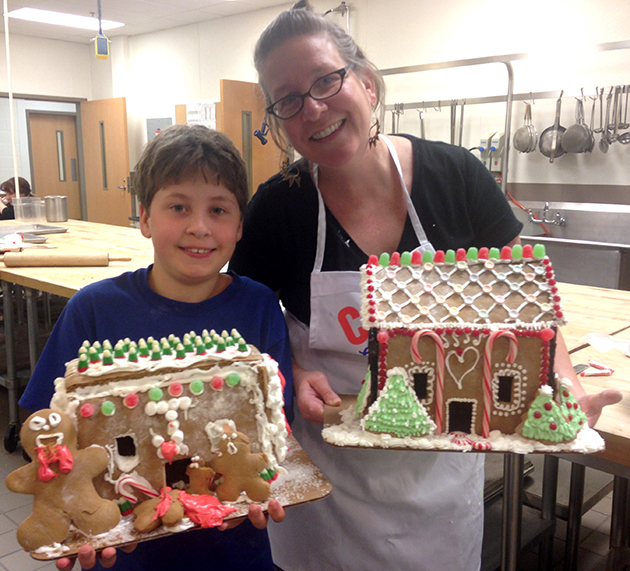
Jodi and her son Jasper show off their gingerbread house creations.[/caption]
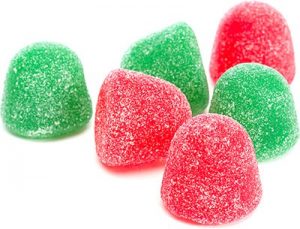 CP: What do you like about gingerbread houses?
JR:
CP: What do you like about gingerbread houses?
JR: The first time I ever made a gingerbread house, I was enchanted. I really felt like I wanted to become miniature and live inside the house! It feels completely magical and fantastical to create a little home out of candy and sweet gingerbread, and the smells, and textures (and of course, tastes, because there’s always scrap pieces of gingerbread that need to be eaten!) are uniquely pleasurable to the senses.
[caption id="attachment_15381" align="alignright" width="226"]
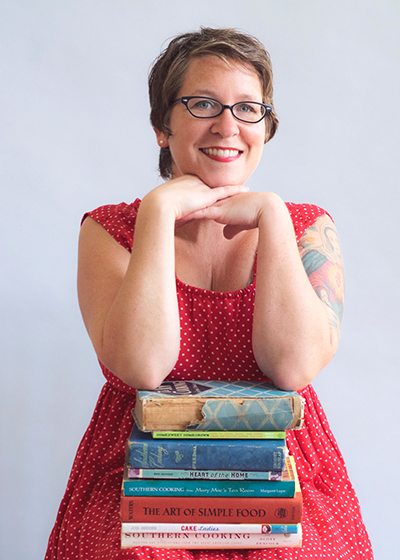
Photo by Nicole McConville[/caption]
CP: Do you have to be architecturally skilled to make a good gingerbread house? Who is the ideal student for your class?
JR: You do not have to be architecturally skilled to build a gingerbread house! The icing and the candy make it very forgiving. Like most things worth doing, though, it does take time. We will spend a good amount of time in the planning phase, cutting and measuring templates to create the right sizes for the pieces. I also always like to bake extra pieces, in case something breaks or bakes wonky.
CP: Have you ever participated in the National Gingerbread house Competition is at the Grove Park Inn? Did the proximity of this annual event in Asheville influence your interest in gingerbread house making?
JR: It has always been my dream to enter a house into the competition at the Grove Park Inn, though up until now I have been too busy with my business, Short Street Cakes, to seriously consider it. But now that I have sold my business to my employee, this just might be the right time!




